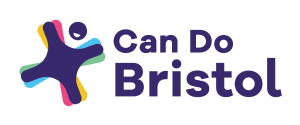Why we need your help:
Since the arrival of the Covid-19 Pandemic, Bristol After Stroke has had to adapt the way we support people in Bristol and South Gloucestershire with life after Stroke. We are having to deliver some of our courses via Video Conferencing specifically ‘Zoom’ as well as our monthly ‘Stroke Café’s and some of our stroke support groups. Some of our services users may not have used this technology before, or have limited experience of using it but, want to experience the benefits of peer support or the courses that Bristol After Stroke are offering which is where the role of Video Conferencing Support Volunteer comes in.
Bristol After Stroke is an independent charity helping people in Bristol, South Gloucestershire and surrounding areas to rebuild their lives. We provide information, practical support, friendship and counselling in the months and years following a stroke. In ‘Normal’ times we would offer this support face to face however we are currently having to offer much of this now over the phone or via video conferencing.
Role Summary:
- To offer technical support to people over the phone (in the first instance) to get them either set up on ‘Zoom’ (or other video conferencing platforms platforms) or confident using it.
- Following initial telephone support, you will provide support through practice video conferencing sessions to help clients to become confident using this form of technology, this may be during the same session or on a mutually agreed date.
- You will need to be clear, encouraging and patient when explaining how to use the video conferencing platform, as some of our service users may never have used this technology before.
This role requires you to be:
- Friendly, a good listener and an effective communicator.
- To be particularly patient and understanding as many of our clients may lack in confidence, suffer from anxiety and have Aphasia (communication difficulties) following their stroke.
- You will need to have experience of using Zoom (and ideally Microsoft teams, or other platforms), as well as confident using a variety of devices such as laptops, mobiles, and tablets where Zoom/ or other application may be used.
- Ideally you will have experience of showing or teaching people new skills, but this is not essential.
- Although you will have support in this role, you will be confident working on your own without direct supervision.
- You will need to be flexible and adapt to the specific needs of the person you are supporting.
- Know about or be willing to learn about stroke and its impact on people.
- Recognise the importance of confidentiality and show this in practice.


